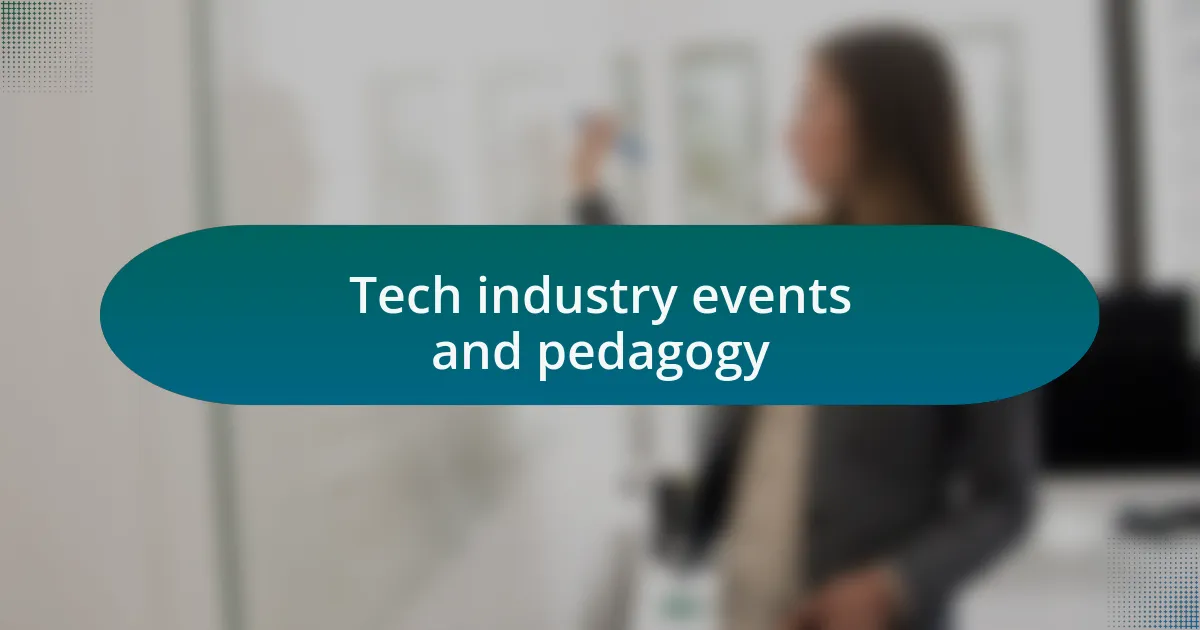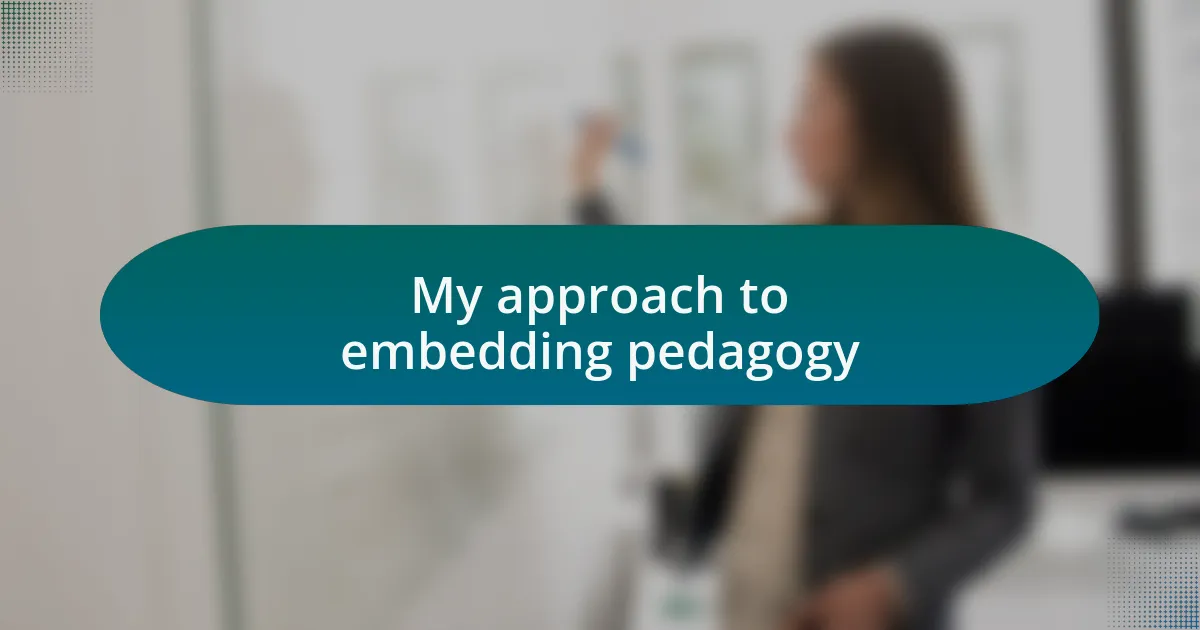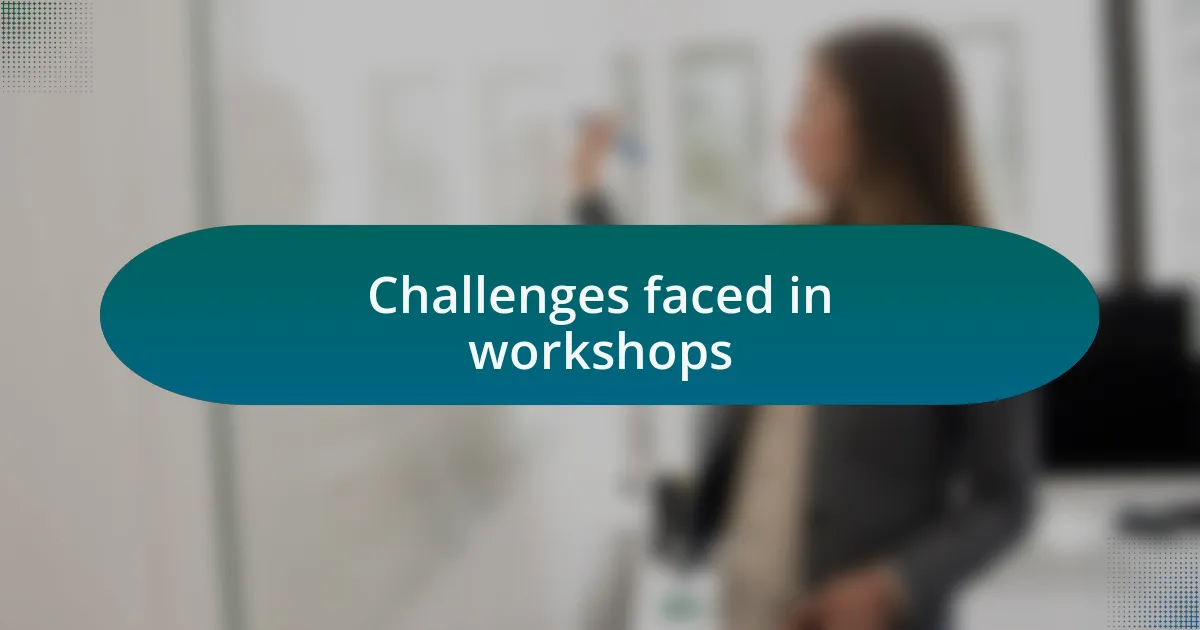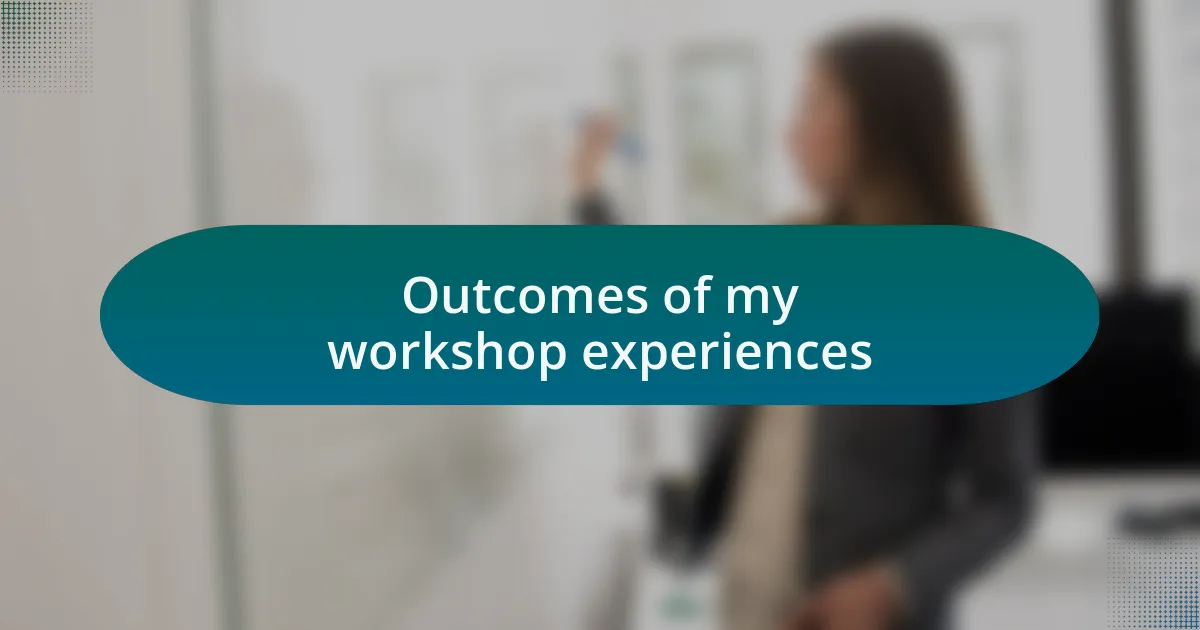Key takeaways:
- Critical pedagogy emphasizes education as a means for social change, encouraging engagement and questioning of societal norms.
- Integrating critical pedagogy in tech events transforms them into deeper learning experiences, promoting inclusivity and vulnerability among participants.
- Facilitating dialogue through small-group discussions and hands-on activities enhances understanding and learning relevance, catering to diverse audience backgrounds.
- Challenges in workshops include participant resistance, varying experience levels, and time management, which require careful planning to foster engagement and inclusion.

Understanding critical pedagogy
Critical pedagogy centers around the idea of education as a tool for social change. I remember my first workshop where I felt a palpable shift when participants started to voice their experiences, realizing that their stories mattered. Isn’t it fascinating how our personal narratives can shape our understanding of complex social issues?
At its core, critical pedagogy challenges the traditional banking model of education, where knowledge is merely deposited into passive students. I’ve seen that when I invite participants to actively engage with the material and each other, it creates a vibrant learning atmosphere. How often do we miss out on this dynamic engagement in conventional settings?
This pedagogical approach encourages questioning societal norms and the status quo. Reflecting on my workshops, I often ponder whether enough attention is given to fostering a safe space for this kind of dialogue. After all, isn’t the journey of questioning just as valuable as the answers we seek?

Tech industry events and pedagogy
Tech industry events often function as platforms for collaboration and innovation, but I’ve noticed a gap in how they integrate pedagogical methods. I recall attending a coding boot camp where the focus was mainly on technical skills, and it struck me how little emphasis was placed on the ethical implications of our work. Have we truly considered the broader impacts of technology on society during these events?
In my experience, weaving critical pedagogy into tech events transforms them from mere networking opportunities into transformative learning experiences. I remember facilitating a panel discussion that encouraged participants to share their perspectives on inclusivity in tech. The reactions were powerful; hearing different voices opened up conversations I never anticipated. Isn’t it remarkable how a simple shift in format can lead to such depth in discussion?
Moreover, fostering an environment that encourages vulnerability can profoundly affect the dynamics of tech gatherings. I vividly recall a moment during a workshop when a participant shared their struggles with imposter syndrome, and suddenly, a wave of empathy filled the room. It made me wonder: how often do we prioritize connection in professional settings, and what might we gain if we emphasized relational learning as much as technical training?

My approach to embedding pedagogy
To embed pedagogy effectively, I focus on creating spaces where dialogue thrives. For instance, I once incorporated small-group discussions into a workshop centered on emerging technologies. Participants were encouraged to lead the conversation, and I was amazed by how their insights challenged the initial agenda I set. How often do we let the voices in the room dictate the direction of learning?
I also prioritize hands-on activities that connect theory to real-world applications. During one workshop, I had attendees engage in a role-playing exercise where they had to navigate ethical dilemmas in tech. Watching their reactions as they grappled with difficult scenarios was eye-opening; it became clear that experiencing these challenges first-hand sparked deeper understanding. Isn’t it fascinating how experiential learning can illuminate nuances we might overlook in traditional lectures?
Lastly, I strive to adapt my approach based on the diversity of the audience. There was a time when I built a workshop around the cultural backgrounds of the participants, which not only enriched discussions but also made learning feel more inclusive. I found that people were more willing to share their experiences when they saw their unique perspectives valued. How powerful it is when we tailor our pedagogy to embrace each individual’s contribution!

Challenges faced in workshops
In my workshops, one significant challenge I often encounter is resistance to participation. I remember a session where several attendees were hesitant to voice their opinions, fearing judgment from peers. It struck me how vital it is to foster a safe environment. Have you ever found yourself in a similar situation? Creating that psychological safety can be an uphill battle, but it is essential to boost engagement and dialogue.
Another hurdle I face is the varying levels of experience among participants. In one workshop about digital ethics, I found that some were experts while others barely understood the basics. This disparity can create frustration on both sides. How do we balance these different perspectives? By carefully crafting activities that cater to both novices and seasoned attendees, I strive to bridge that gap, ensuring everyone feels included and valued.
Time management can also be a tricky aspect. During a workshop on innovative tech solutions, I planned for deep discussions but quickly realized that not all topics could be explored thoroughly. I often ponder if I’m allowing enough space for critical conversations or simply rushing to cover everything. It’s a delicate balance; prioritizing content while respecting the need for conversation can sometimes feel overwhelming, but I’ve learned to adjust my agenda when necessary to allow for richer discussions.

Outcomes of my workshop experiences
One remarkable outcome of my workshops has been the creation of a vibrant community among participants. I vividly recall a session on collaborative coding, where discussions flourished beyond the workshop’s end. It was heartening to see attendees sharing resources and staying connected, demonstrating the genuine desire for continuous learning and support. Have you ever witnessed such spontaneous collaboration? It truly reinforces the idea that when people feel valued, they’re eager to contribute and grow together.
Another outcome is the noticeable increase in confidence among participants. I still remember one individual who initially sat quietly at the back, unsure of their voice. By the end of the workshop, they were sharing their insights enthusiastically. It’s such moments that make me realize how empowering it can be to encourage diverse voices. Can you recall a time when you felt empowered to speak up? That transformation in individuals can spark a ripple effect, inspiring others to engage more fully.
Lastly, I’ve seen a shift in perspectives regarding critical issues within the tech industry. After a session focused on inclusive design, many participants expressed a newfound awareness of the importance of diverse representation in tech. It’s fascinating to observe how a single workshop can open up dialogues that challenge existing beliefs. I often wonder: how can we maintain this momentum? Sustaining these conversations beyond the workshop environment is essential, and I’m committed to nurturing that enthusiasm in future initiatives.